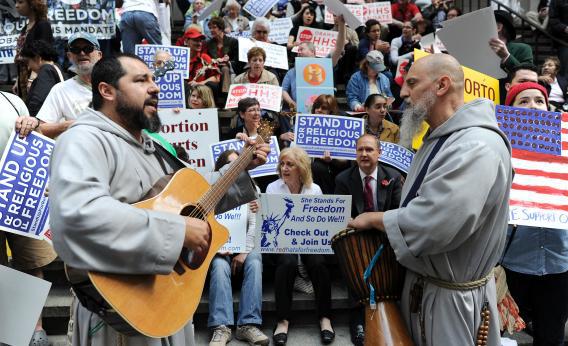The Obama administration moved today to provide a broader opt-out provision for those nonprofit religious institutions that have objected to providing health insurance coverage that includes contraceptives. While the proposal loosens the definition of “religious employer” somewhat, the mandate would still require that a third-party issuer step in and provide the copay-free birth control.
The White House is expected to formally unveil the proposal later today, but administration sources have already previewed the announcement to a number of Beltway reporters, and the Department of Health and Human Services has likewise released a fact sheet on the proposed rulemaking. Here’s CNN with the broad strokes:
In March, after an uproar among religious institutions that didn’t want to pay for contraceptives, the Obama administration offered several policy suggestions that would require the administrator of the insurance policy, not the religious institution or the insurer, to pay for contraception coverage and invited comment on those proposals. …
“Religiously affiliated organizations will be given the option of exempting themselves from the requirement of providing their employees with contraceptive access or service that they are morally opposed to,” said the source.
According to HHS, today’s move will simplify what constitutes a “religious employer” as it relates to contraceptive coverage. The proposed rule would eliminate the need for such an entity to (via the HHS fact sheet):
- have the inculcation of religious values as its purpose;
- primarily employ persons who share its religious tenets; and
- primarily serve persons who share its religious tenets.
The new definition would largely echo how the IRS classifies religious employers, and would primarily include churches, other houses of worship, and their affiliated organizations.
The biggest change would be that “a house of worship would not be excluded from the exemption because, for example, it provides charitable social services to persons of different religious faiths or employs persons of different religious faiths,” according to the fact sheet. According to HHS, the change is meant to codify the intent of last year’s rules, and is not expected to “expand the universe of employer plans that would qualify for the exemption.”
This post was updated at 12:03 p.m. with additional analysis.
